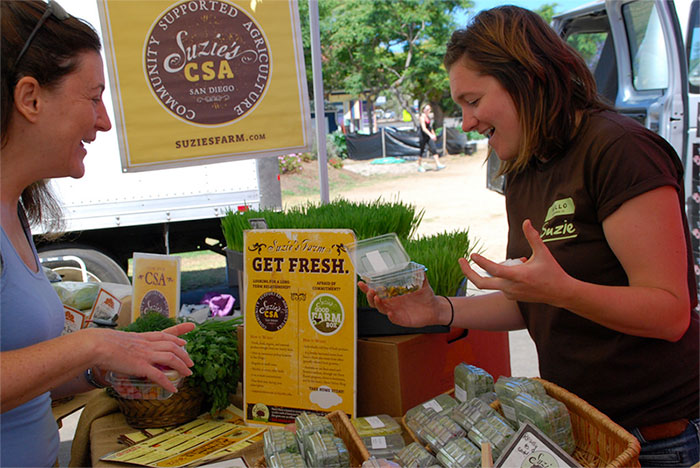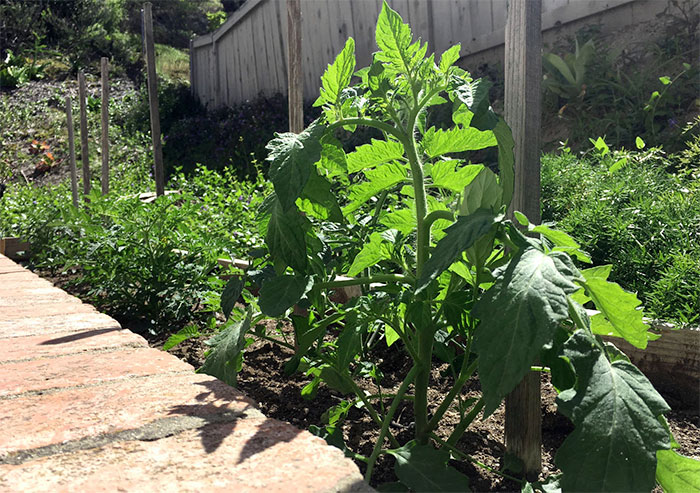
Can Earthworms Change the Future of Retail?
My hometown of Encinitas, California, is the last place you might look for a glimpse into the future of retail. If anything, Encinitas – a true hippie's paradise – is a throwback to simpler times. Birkenstock sandals and tie-dye tees are fashion mainstays for most locals. People practice qigong on the beach and they meditate in the park. Every fourth car is a hybrid, and most have a yoga mat in the back seat, because let's be real: you just never know when you will need to unwind with a sun salute or two, right???
And the way Encinitas thinks about food would drive many people nuts. Vegans, vegetarians and pescetarians are everywhere. Most, regardless of which animal-based products are (or are not) on the menu, would rather go hungry than eat a piece of produce that isn't organic.
I suppose it would be fair to say that my wife and I conform to the Encinitas stereotype: we drive a Prius, we practice yoga, we are pescetarians, we compost and yes, we grow organic produce in our backyard.
Standing Out from the Crowd
Food and gardening shops that cater to people like us are everywhere in Encinitas. There's a farmer's market within 5 miles of our home every day of the week, and community gardens, organic nurseries, hydroponic specialists and big box stores all compete for their share of our neighbors' macramé wallets.

Standing out in this crowded space can be as difficult as growing heirloom tomatoes by the beach (believe it or not, because of the infamous Southern California "marine layer" that hides the sun for most of May and June, growing tomatoes here actually is rather difficult).
Another unique aspect of this tiny niche of the retail industry is the relative absence of significant competition from e-commerce. Sure, people buy seed packs online, and perhaps some tools, but the people in my hometown want to touch and feel the plants that they're buying. They want to see each seedling. They want to know who the grower is, understand each plant's individual story and they want to build relationships with the people who sell them their precious plants and produce.
RELATED: RETAIL'S RALLYING CRY AGAINST AMAZON
Needless to say, Saturday mornings in Encinitas are always extremely busy days at these shops. The challenge for garden retailers here is less about digital and omni-channel integration and more about creating assortments and experiences that bring people into their stores.
Spring Rituals Lead to Sumptuous Summer Suppers
Every year, as spring rolls around, my wife and I scour our organic city, on the prowl for new tips, new soil amendments and new organic fertilizers that will help our pepper, cucumber, zucchini and beloved tomato plants thrive. As we were about to begin our search this year, a local gardener we follow online recommended a new (to us) destination: Encinitas Hydroponics. Ever anxious for new gardening gold, we immediately drove over to investigate.
What we found when we arrived was not all that different from any of a dozen other denizens of dirt in Encinitas: potting soil, garden soil, an array of fertilizers and food, and Joe, a wizened gardener, ready to dispense wisdom and advice to any who would listen.
So we asked him for any advice he might have to help grow tomatoes so close to the beach. As Joe waxed poetic about abundant bounties past, we eagerly invested in many of his suggestions, to the tune of about $50.
A Special Blend of Tea
But what stood out most was something else that Joe recommended, something that wouldn't cost us a dime. He told us to come back on Sunday morning to pick up a free gallon of his special brew of worm casting "tea." Worm castings, you see, are great for the garden. Worm castings, also referred to as worm manure, are an organic form of fertilizer that improve soil aeration and increase water retention.
The problem? Producing enough worm castings to feed a garden our size would require a lot of worm poop. Rather than maintaining our own (sizable) worm bin, my wife and I have always elected instead to purchase our worm castings by the bag. The results have been, for the most part, uninspiring.
Joe tells us that his tea is far better than bagged worm castings because his brew contains active microbes that are instantly available to the plants, and he insists we come back the next Sunday with an empty jug to see just how well his special blend of active microbes will perform in our tomato patch.
The Early Bird Gets the Worm (Tea)
With nothing to lose, we went back to the store that Sunday to collect our tea. We arrived after lunch, at about 2:00 in the afternoon. When I asked Joe about his tea, he just looked at me and laughed. He told me they usually "sell out" of his tea before noon. So back I went this Sunday, arriving just before they opened. There were already three people there, each with an empty jug in hand, waiting for Joe to unlock the door.
They all swore by Joe's special blend, and they each said they come back 3-4 Sundays every month to pick up another gallon.
And you know what else they did while they were there to pick up their poop? They engaged. They told Joe how their gardens were growing, and as they did so he gave them each different advice based on their individual results. All three benefited from their trip to the store in multiple ways, all three engaged with the brand, and two of the three purchased other items while they were there.
Moving the Needle
I, too, considered an additional purchase while there, and as I drove home with my worm tea in tow, I thought about the lesson I learned about the potential future of retail: meaningful experiences really can move the needle.

Joe and his team understand that people need a reason to come to their store. They give people a reason to come, and when they arrive for their trusty tea, they are greeted by a staff of trusted experts ready with localized, personalized advice and recommendations.
As a result, dozens of people flock to their store. Every. Single. Sunday.
What We Can Learn About the Future of Retail from Earthworms
I also thought about how this lesson could be applied to my customers at Aptos. I thought how easy it would have been for us to simply order another bag of worm castings from Amazon without leaving the house. And I thought how there are four local nurseries and three big box stores with cavernous garden centers between our house and Joe's store.
But we didn't choose any of those easier options.
Instead, I slipped on my flip flops and made the trek to go see Joe. Because he has made himself – and his store – indispensable to us, our tomato plants, and dozens of our Encinitas neighbors.
And whether you sell gardening supplies or running shoes, the lesson is the same: if we want to move the needle for our stores and enhance our competitive position against Amazon, we have to make our stores indispensable to our customers.
Because while earthworm tea certainly isn't glamorous, it has become indispensable to the hippy gardeners in Encinitas. And if the earthworms have taught me anything about the future of retail, it's that we all need to be more creative so that we, too, can become indispensable to our customers.



